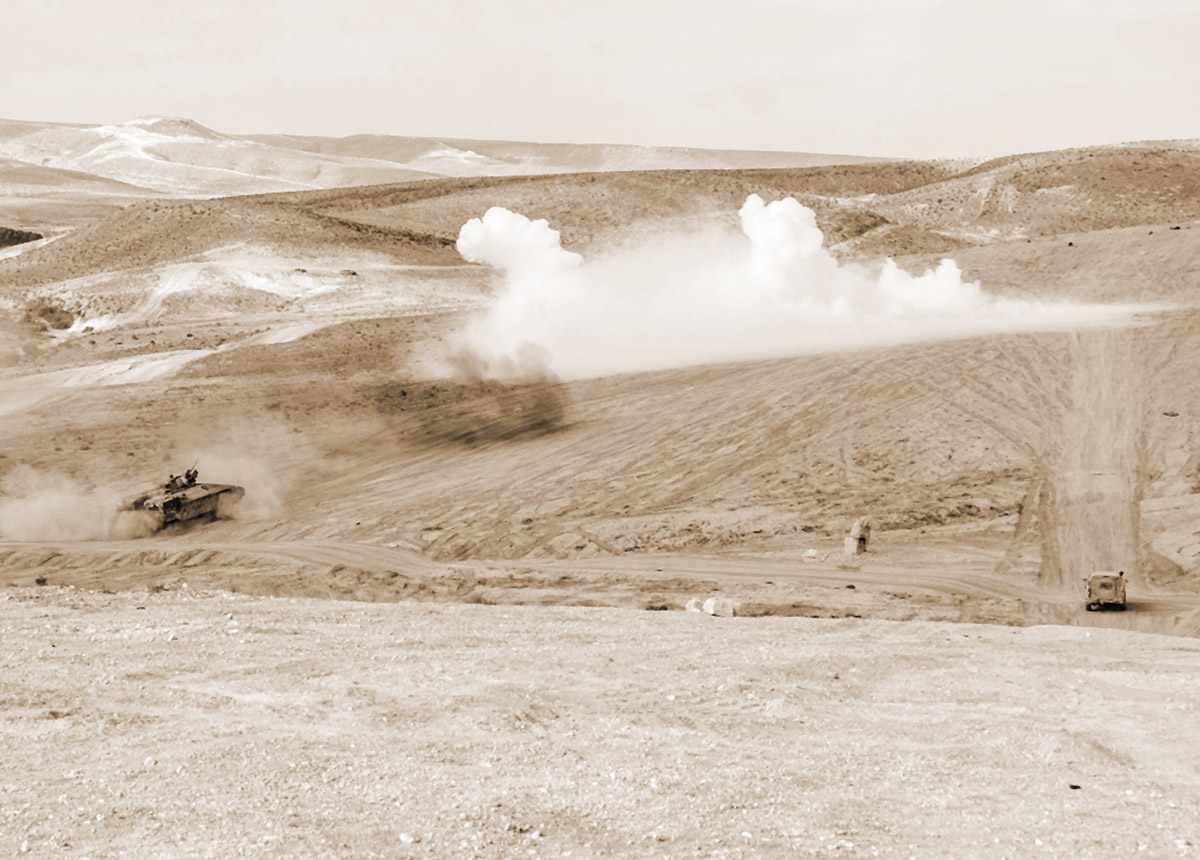I was her
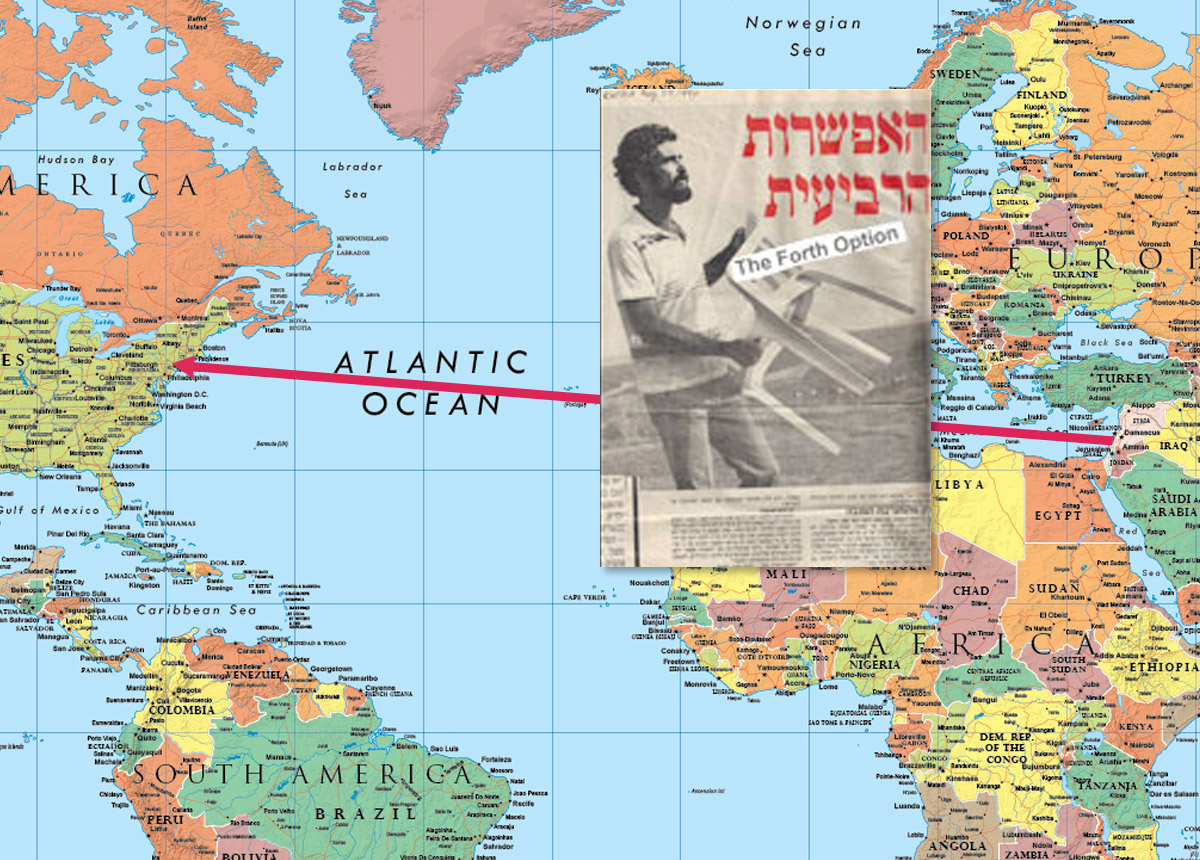
The Fourth Choice: On Leaving Israel
During a return visit to Israel in 1990, I was interviewed by the editor of “Chotam”, an Israeli newsletter, to discuss my culturally unpopular decision (at that time) to leave the country I loved (and still do), Israel. I mapped for him the three options I had if I were to have stayed and thus, however indirectly, have been party to the Israeli occupation of the West Bank: 1. As the Dissonance Theory predicts, I would have gradually become more right wing in order to justify my actions and my country’s immoral occupation of the West Bank and Gaza. 2. I would have become more politically involved in order to fight the occupation and promote peace and non-violent co-existence between Israel and its neighboring Arab countries, similar to what my sister did as part of Women in Black. 3. While keep hoping for peace, I would create and live in a bubble, not attending to the whole peace/war/occupation issue altogether… 4. None of these options were acceptable, so I chose a fourth option… to leave.
In other words, leaving Israel was partly related to my interest in avoiding acting like a “passive bystander” (i.e., bystander effect) in regard to the immoral Israeli occupation of the West Bank.
The choice, an objection, a dissent,
A moral decision to stand up against
the Israeli occupation of the West Bank;
Had been agonizing for me,
Leaving my homeland, the country I fought for
was wounded for, had risked my life to defend
My decision, culturally unpopular,
But morally correct
Monkey & Me: Respect For & Identification With the Enemy
After a few days of cautiously moving towards enemy lines in the 1973 war, our military unit became the target of artillery shells. Some fell to the left of us, some to the right, some in front of us where we were headed, and some behind us, where we had been an hour ago. In a curious, fascinating, and yet terrifying pattern, the shells began to gradually close in on us in a perfect lethal circle, closer and closer on all sides. As our unit paused under a grove of high palm trees, the shells began falling so close to our group that it became obvious that the artillery weapons were being systematically directed by someone or something that was aware of our location. Was there an unseen aircraft tracking us, a satellite, or an eye in the sky?
As we frantically tried to figure out who/what was doing this we peered at the sky through the fronds of the palm trees above and suddenly spotted what in some military jargon is called a “monkey” — a perfectly camouflaged Egyptian soldier sitting atop one of the trees, trying to blend in with the thick canopy. We instantly realized that he was the one providing his fellow artillery soldiers miles away with the exact location of our unit. Within a milli-second, about 20 to 30 solders aimed and rapidly shot their M-16’s automatic guns at him. By the time he hit the ground he had several hundred bullet holes in him. Needless to say, he did not suffer much. A couple of distressed, frightened and enraged soldiers even shot a few more rounds into the lifeless bleeding body.
I looked at this bullet-ridden corpse and experienced an upwelling of admiration, respect, and even awe, for this man who had directed his artillery on our unit… and in the end, on himself. I considered how he had been deliberately and consciously ready to face death in defense of his country, just as I had been a couple of days prior while crossing the bridge of fire. My feelings of identification and admiration were not shared by my fellow soldiers. In fact, a fellow officer rushed toward the body and took the bayonet off his gun, both as memorabilia and as an attempt to humiliate the enemy. I was unexpectedly overcome with rage and hatred towards this man’s lack of acknowledgement of the bravery of the monkey. I instinctively wanted to protect his body, and at the bare minimum, have our unit spend a few seconds around it to honor the complex relationship that we had with our enemy. I did feel hatred towards the threat he had posed to myself and my soldiers, yet I also was touched by his sacrifice and courage. I was very aware that I could have been the one to be riddled with bullets just a couple of days earlier on the bridge.
In effect, this is what we soldiers are about: walking the tightrope of potential sacrifice while defending our country as heroes. Yet, I suspected that the monkey, like me, had not viewed his defiance of death and willingness to sacrifice as particularly brave or heroic. Rather, his act was a way to embrace life in its fullest. Ironically, saying ‘Yes to life’ meant also saying ‘Yes to death.’
I identified and could understand
the role of the monkey
a soldier who provided his artillery soldiers
with the location of our unit
That he had been willing to die
and willingly sacrificed himself,
without fanfare,
as part of the greater ecosystem of life
and for his country.
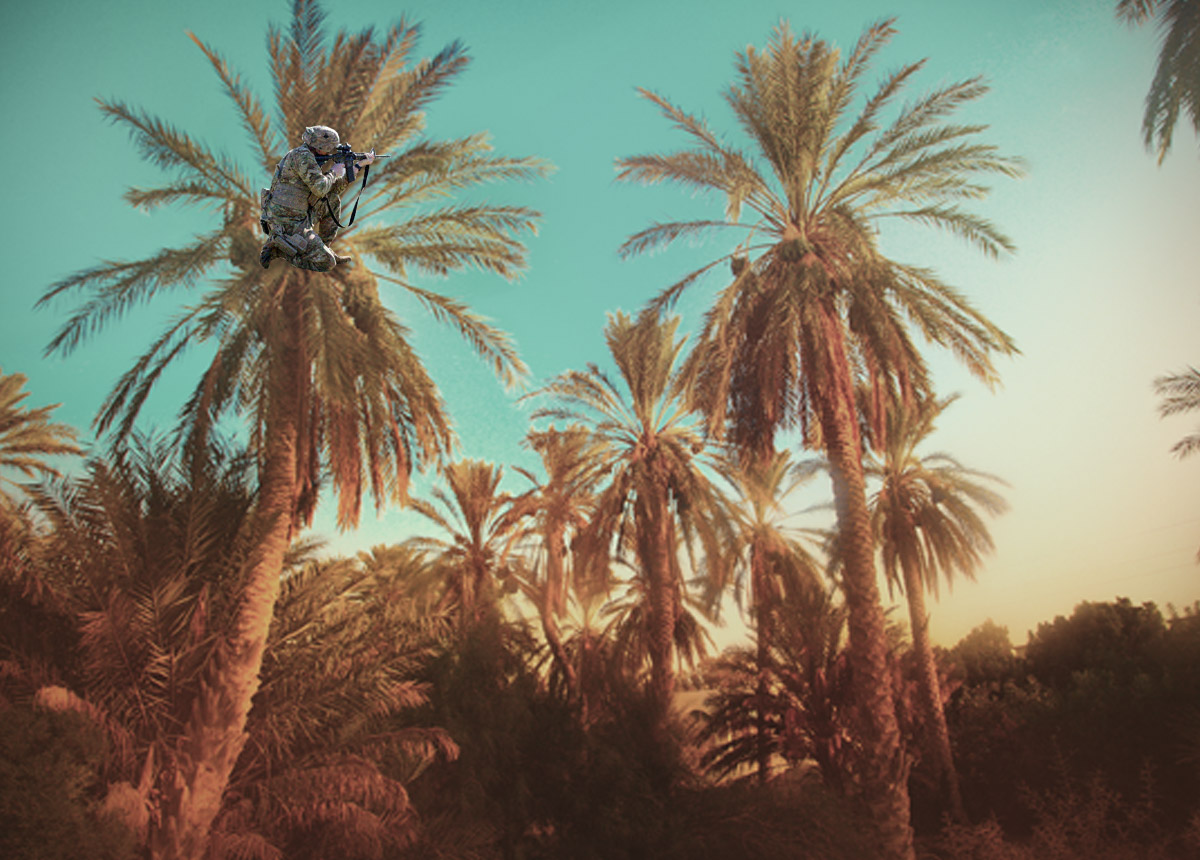
The Crater Dilemma: Instinct vs. rational & impulse vs. logics
Another memory from the 1973 Yom Kippur war: we are deep in the desert and artillery shells, with their lethal downpour, were raining down all around us. Each exploding shell created a crater in the sand. I was standing at the edge of one of these craters, covered with dust from the latest explosion. Obviously, my instinct told me to run for my life, to run as fast as I could away from that crater before the next shell struck, but my military training repeatedly ran through my head telling me that ‘two bombs never fall in the same place.’
Accepting that premise meant that this new crater was the safest place around and therefore I should jump into it, against all my instinct. In the confusion of life and death, it was the fight between intuition and the brain – instinct vs. rationality. I jumped into the crater, which probably saved my life. I have, since that day, always wondered how many times in life we stand at the edge of craters needing to weigh our instinct against our rational inclination; our impulse against the logical choice. Indeed, life presents us with situations where a crater may even sink us into the earth, but where the seeds of creativity may flourish. (Listen to an audio recording, describing this junction)
A recollection of the 1973 Yom Kippur war,
shells exploding,
undisturbed sand became a bed of craters,
for us soldiers to hide in perhaps,
from the storm of shells that poured fire on us
even impulsivity had reason over logic,
meant life and not a sudden death
Occupation of West Bank & Gaza: Being Sane in an Insane Place
Thinking back to my early years, I can see that encounters with death during my military service, testing boundaries, questioning commonly held beliefs, seeking the truth, questioning authority, and searching for ways to choose between intuition and logic were all inherent parts of who I was. I loved to learn by examining what I or others thought was right or wrong. I did not do it alone; for example, there was an incident where some soldiers did not come back from an R&R furlough to the base in the Gaza Strip, but instead admitted themselves to a mental institution [to avoid returning to the base in Gaza]. This meant that I could not give a much needed break to other soldiers in our unit and I was furious. I expressed my outrage to my mother on the phone. In a soft voice, my mother responded to my anger by saying, “Perhaps those who admitted themselves to the mental institution rather than coming back to the camp were the sane ones”. I was speechless. In that one, short sentence, she forced me to question the whole notion and definition of sanity. In my own way, I continue this path.
Outraged at the offense of others
Who hid, feigning insanity
Angry at them for their callousness
And lack of service
They refused to fight
their defiance saved themselves
from the real insanity of war
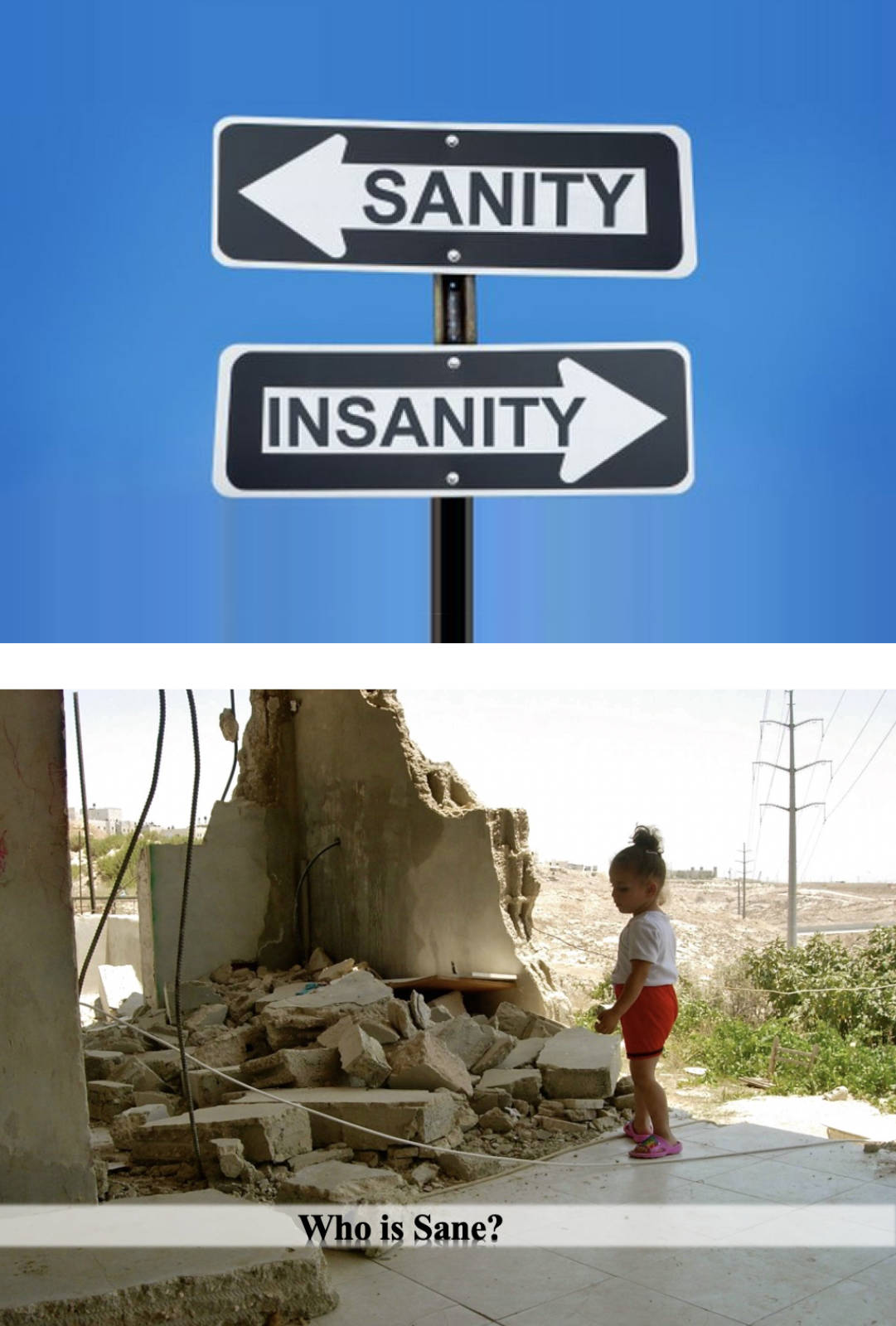
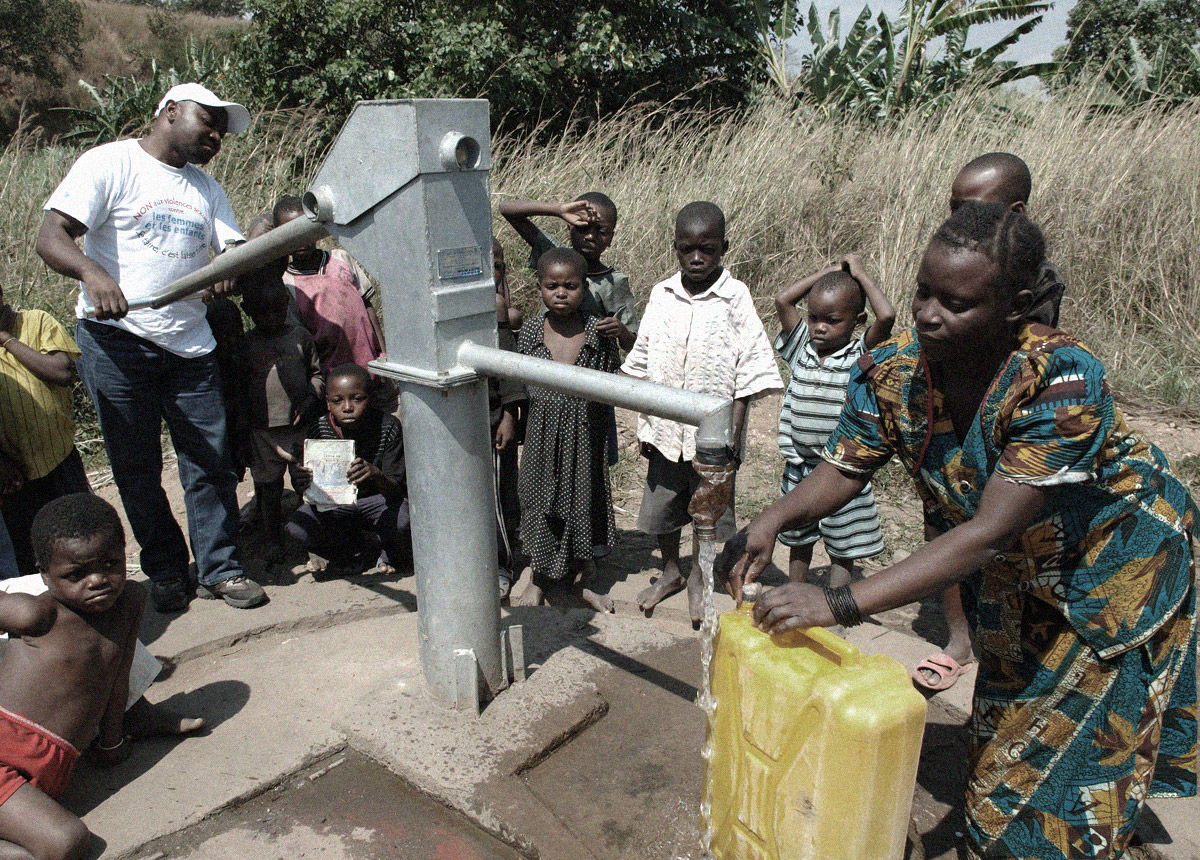
Running Water & Destroying the Village’s Heart
During my time in East Africa I also helped develop a running water system in order to improve the quality of sanitation and eradicate malaria. With the help of a wise old man of the tribe, I came to realize, to my chagrin, that this project, however well intentioned, also destroyed one of the most important institutions of the village . . . the Well, which forever had been the heart and gathering place of the community. It was painfully ironic.
My heart was in the right place,
to improve the quality of sanitation
and eradicate malaria
Yet, with my running water system
I hurt the village’s heart, its gathering
place –the well
The community which I wanted to keep robust
Had dissipated, a deep and painful realization
Confirming Israel’s Moral Amnesia
On my 2019 return trip to Israel, observing its political-moral scene was a painful reminder of why I left the country 40 years prior. Back then, I knew I had to leave, as it was clear to me that staying in Israel and bearing witness to the immoral occupation would corrupt me as well. This was a consequence I refused to pay. As Dissonance Theory explains, when there is an inconsistency or discrepancy in people’s minds between attitudes and behaviors it is most likely that the attitude will change to accommodate the behavior. People tend to adjust their ideology to their behavior and not vice versa. Sadly enough, this is, indeed, what seems to take place in Israel today.
A tragic example is of an Israeli teenager girl who was brutally murdered in August 2019 by a homemade bomb that exploded at a natural spring. She was visiting this spring not far from her home in a settlement in the West Bank. Government officials declared it an act of terrorism. A local rabbi, declared her “a martyr,” calling on God “to avenge her death.” There was barely any mention of the greater context. The fact that the young woman was part of the occupation, living in a settlement built on military-conquered Palestinian land in the occupied territory of the West bank was barely uttered.
I decided to conduct an experiment, asking people first what they thought about “the girl who was recently murdered in the West Bank” and asking others (a second group in the ‘experiment’) for their thoughts about “the settler-girl who was recently murdered in the West Bank”. Almost unanimously, people in the second group objected to my referring to her as a settler, accusing me of “justifying her murder.” I definitely did not justify the murder; all I was doing was simply putting the murder in context. I think that sadly enough, most Israelis, even the ones that lean to the left, after 50 years of occupation (as predicted by the dissonance theory) have lost track of the context—the oppressive, inhuman, murderous immoral occupation of the West Bank.
In the context of lies
Truth pales
Immorality prevails
I wanted no part in that…
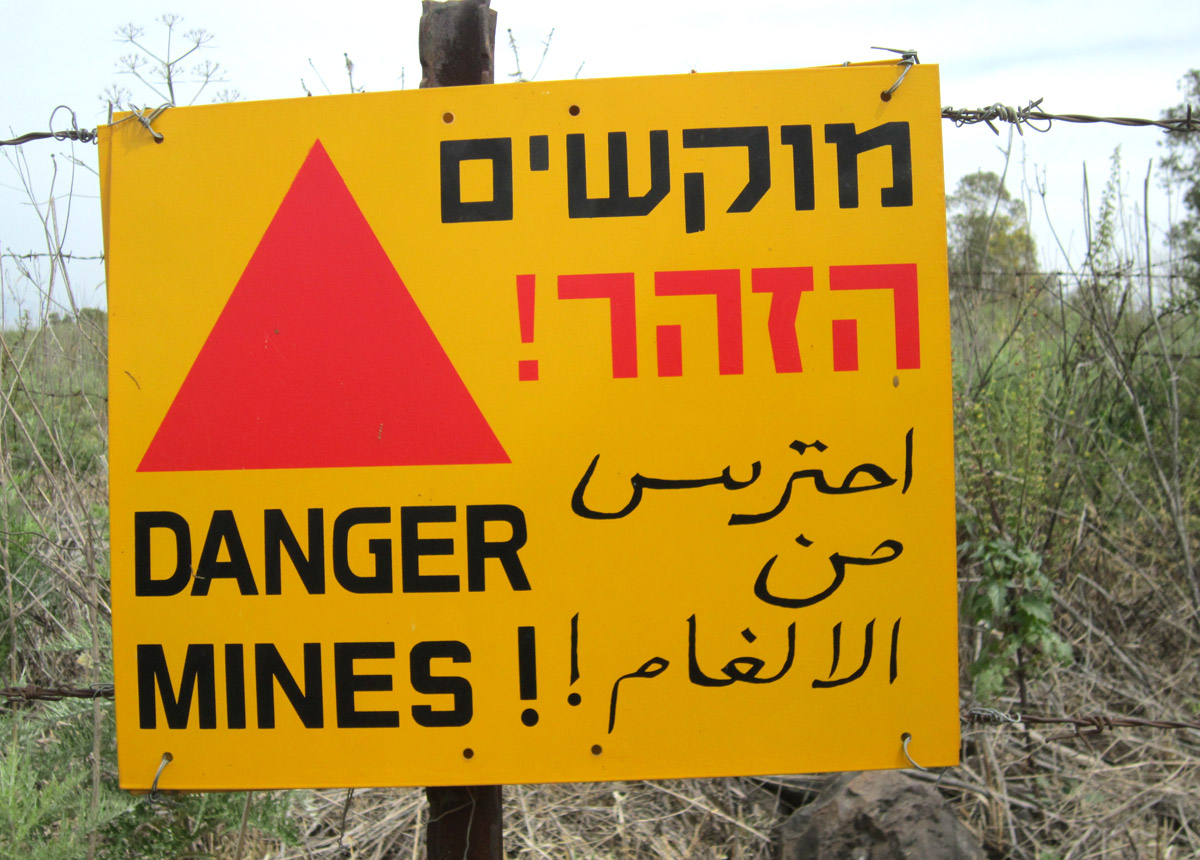
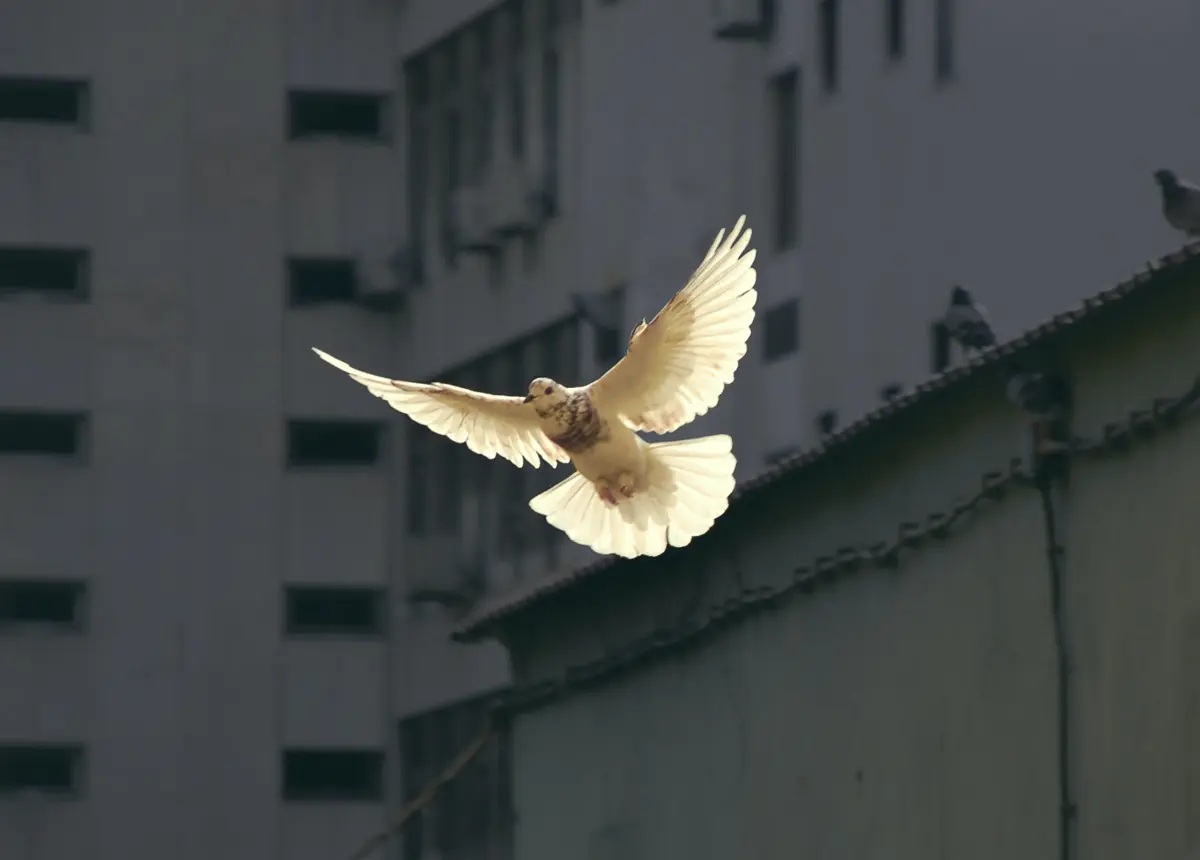
An Israeli Palestinian Solution is possible. 2023-2024
By an Israeli lieutenant & paratrooper who served in Gaza & left Israel for moral reasons
Competing historical ‘claims’ of who was first, Moses or Allah or who owns what, Muslims or Jews or who is ‘holier” should NOT be part of the current ‘cease fire’ negotiation. Israel gets its 1948 territory and the Palestinians get the entire West Bank (settlers are out) and Gaza (Hamas and all).
The biggest challenge and the real question for what is happening in the Middle East, Gaza and Israel these days, Oct. 2023 is to acknowledge the deep hatred on both sides and how to live next to each other, reluctantly accepting co-existence with each other. Anti-Semitism incidents and propaganda have soared to a record high in 2023/2024.
I am Ofer Zur, a psychologist, an enmity and war expert, and a former lieutenant and paratrooper in the Israeli army who was wounded in the 1973 war. I was born in Israel in 1950, and during my military service, was stationed in a refugee camp in Gaza back in 1970. This experience led me to the conviction that I had to leave Israel, which I did. (See: I Was Her, Out-Of-Body Experience, On Leaving Israel).
I am watching with horror and deep sadness what is happening in Israel and Gaza since Oct. 7, 2023. Israel bombing Gaza and killing thousands of civilians (post 10/7/2023) does NOT eradicate Hamas, it gives it much MORE strength and popularity.
Knowing the region and the complexities of its people, I am proposing a solution for the situation. The main challenge for Israelis and Palestinians is, how to live or have a ceasefire with an enemy who wants to destroy you.
Here are my views and a long-term peace proposal for the region:
- Israel does NOT have a vote about whether, or not the Palestinians, including Hamas want to destroy it. The biggest challenge for Israelies would be how to live next to a hostile country bent on their destruction.
- Israelis should and must give the Palestinians their own state. No more occupation!!!!! No more hateful settlers!!! Unarmed-peaceful-respectful settlers can stay in the West Bank ONLY if they surrender and accept the Palestinian rule and full control of the West Bank, i.e. Palestine.
- A Palestinian state will include the West Bank and Gaza. They will be connected via tunnel, bridge or train – by appropriate means, satisfactory to both sides. The main reason for this is simply self-preservation for Israel. “Occupation destroys the occupier.” Gaza will have its own sea-port and both, West Bank and Gaza will have their own international airports. Some optimistically, but not very realistically, suggest, that in exchange to giving the Palestinians their own state, they will de-militarized both Gaza and West Bank.
- Israel with its superb military capacities CAN protect itself if it chooses to, (not make it ridiculously easy, as it did on Oct. 7, 2023).
- The hope is that in 2-3 generations (Yes, 2-3 generations, not 2-3 weeks or 2-3 months or even years), the situation will de-escalate, Israel will be forgiven, and incentive on both sides, for cooperation will have developed.
- Not much different that the Protestant and Cathelic in Ireland 1968 to 1998 30 years conflict. And hopefully similarly to how one of the worst conflict in human history between the Hutu and the Tutsi in Rwanda where nearly one million, primarily Tutsi were killed was peacefully resolved. If Israel fully give the West Bank to the Palestinians it is likely to be a similar to the current situation between India and Pakistan that arose out of the 1947 partition of British India, which established a Muslim-majority Pakistan and a Hindu-majority India. They currently co-exist with tension and highly militarized border. Although both countries have maintained a fragile cease-fire since 2003, they regularly exchange fire across the contested border. Both sides accuse the other of violating the cease-fire and claim to be shooting in response to attacks. Fences make good neighbors! Israel may end up with friendly relationship with Palestine they way Israel has very friendly relationships with Jordan and Israel or may be more similar to the India and Pakistan tense but rather stable relationships. Either way is much better and more fair and more just of the current 1967-2023 situation.
The big-picture view and perspective:
Getting the 500,000+ religious settlers out of the West Bank is not easy but definitely doable because: They have no economic base – $ comes from outside. They have light weapons but are not highly trained in using them. They cannot really fend for themselves. They rely on the Israeli army to keep the highly guarded exclusive roads to Israel open. So it is doable to force them out from the West Bank (AKA, Palestine).
In the same way that Israel lives with its enemy relationships in the north, Lebanon and Syria, so will it learn to live with a hostile Palestine.
They bomb Israel, Israel bombs back. Then, in a couple of generations there will be peace, similar to Israel’s current peaceful relationships with Jordan, Egypt and… growing peace with Qatar and Saudi Arabia.
I am hopeful…
I have seen the pain
I have sustained the wounds
I left to refrain
From an immoral existence
I see the dove with an olive branch
Flying in the distance
I am hopeful
Visiting Israel in 2024 & Sending an Apology Paper Airplane to Gaza
In August 2024 I flew to Israel into the war-zone, which started on October 7th, 2023 with the massacre at the Nova music festival next to the Gaza Strip. Unlike the shock response that almost all Israelis and the world experienced, I understood the frustration of the Palestinians in Gaza who have been occupied by Israel since 1967.
In fact, putting October 7th, 2023 in HISTORICAL CONTEXT OF OCCUPATION, I personally, felt partly responsible and guilty for the massacre. In my mind’s eye, the Hamas soldiers who committed the atrocities of the Oct. 7th massacre, were the children of the Palestinians whom I myself killed when I served in Gaza as an officer/paratrooper in the Israeli army (IDF) in 1970. The same guilt and moral reasons compelled me to leave Israel in 1979.
In this last visit, I was driven to toss a paper airplane with an apology (in Arabic) over the fence into Gaza, asking for forgiveness for what I did back in 1970. My idea of an apology airplane outraged many Jewish-Israelis, in fact, it has totally alienated me from most of my family and friends in Israel. My Palestinian guides and colleagues were emotionally moved with my unusual gesture and gave me enormous heartfelt support and appreciation.
Upon my return to the US, where I have received more support, I continue to fear that Oct. 7th will repeat itself in the West Bank.
Generations of pain
Transmitted in vain
Violence begetting violence
Time and again
All I can say is: Sorry
For my part
In this atrocious chain
Theme #2: Military Experience
Theme #3: My Family & My Health
Theme #4: Questioning Authority, Challenging Accepted Truths & Debunking Myths
Theme #5: Psychology of war – The Love of Hating
Theme #6: Adventures & World Wide Travel
Theme #7: On Good Rules & Bad Rules: Pushing the Limits & Freedom Seeking
Theme #8: My Moral Junctions
Theme #9: Looking at Death Straight in the Eyes
Theme #10: Professional Psychology, Zur Institute & Professional Achievements
Theme #11: On Men, Women, Gender Role and Gender Relationships
Theme #12: At 70’s: Next Mountains to Scale
Theme #13: Amazement! I am still here
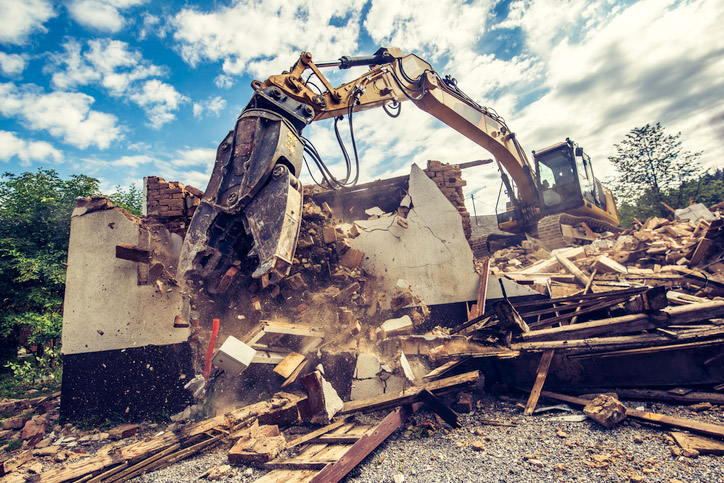 Before exploring ‘life after leaving,’ I want to revisit my time in Israel in the early 70s as an officer in the Israeli army. Our highly trained unit was stationed in a tremendously overcrowded, poverty-stricken, and polluted refugee camp in the occupied Gaza Strip. The camp consisted of thousands of single-story houses jammed full with multiple generations in families, and often chickens and ducks as well! The narrow streets—actually muddy alleyways—emitted the foul stink of urine and excrement from donkeys, mules, chickens, ducks and… humans.
Before exploring ‘life after leaving,’ I want to revisit my time in Israel in the early 70s as an officer in the Israeli army. Our highly trained unit was stationed in a tremendously overcrowded, poverty-stricken, and polluted refugee camp in the occupied Gaza Strip. The camp consisted of thousands of single-story houses jammed full with multiple generations in families, and often chickens and ducks as well! The narrow streets—actually muddy alleyways—emitted the foul stink of urine and excrement from donkeys, mules, chickens, ducks and… humans.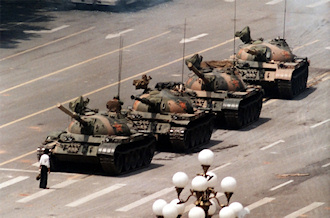 I despised myself for not protecting this woman and her children, for not standing in front of the Israeli bulldozer the way the heroic ‘Tank-Man’ stood in front of the tanks in Tianaman square in China.
I despised myself for not protecting this woman and her children, for not standing in front of the Israeli bulldozer the way the heroic ‘Tank-Man’ stood in front of the tanks in Tianaman square in China.